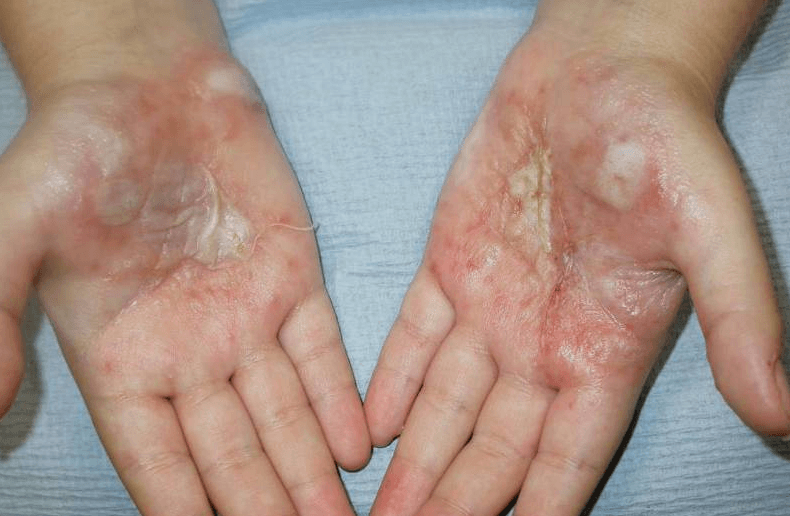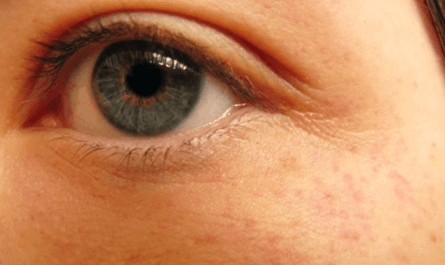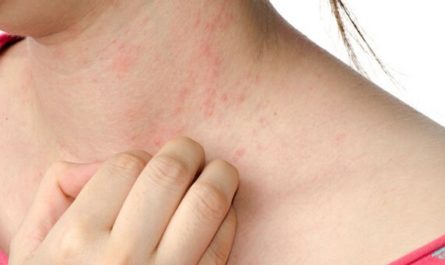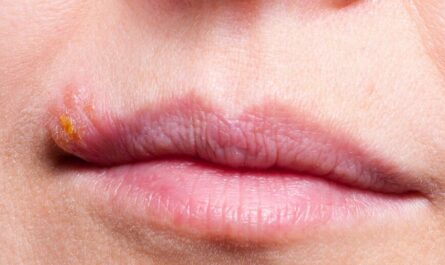Herpes on the hands is an unpleasant disease that is highly contagious and characterized by outbreaks of fluid-filled bumps on the skin. While it can affect any body part, hand infections can be inconvenient. This article will discuss the common causes of Herpes on hands and some best natural treatments.
What is Herpetic whitlow?
Herpetic whitlow, also called digital herpes simplex, is an infection created by the herpes simplex virus. This is a painful viral infection which is also called herpetic whitlow or finger herpes.
Herpes whitlow is a contagious disease and can be passed from one person to another via direct contact. It can occur on any body part, especially your fingers and hands. This unpleasant disease is highly contagious and characterized by outbreaks of fluid-filled bumps on the skin.
The infection can occur in all ages people, including both men and women. However, you are more likely to get the disease if your immune system is weak. Children and professionals working close to the infected patient will be more at risk.

Common Causes of Herpetic Whitlow
There are two types of Herpes simplex virus: herpesvirus 1 (HSV 1) and herpesvirus 2 (HSV 2).
The HSV-1 infection (oral herpes) can be transferred by:
- Kissing
- Sharing utensils
- Sharing lipstick or lip balm
HSV-2 virus (accountable for genital herpes outbreaks) can be transmitted by:
- Having sex at a younger age
- Having multiple partners
- Compromised immune system
Symptoms of Herpetic Whitlow(Herpes on Hands)
While herpes on the hands most often affects fingers and fingertips, it can spread to other parts, such as the palmar area. You may feel a tingling sensation, burning, and pain after one to two weeks of exposure to the herpes simplex virus.
Over the next week, the affected area will become red, inflamed, and swollen. You may notice small fluid-filled blisters on the affected part. In addition to red fluid-filled bumps, herpes on hands outbreak can also be accompanied by symptoms such as mild fever, swelling, body ache, or swollen lymph nodes in your underarm area. The symptoms may last 7–10 days.
Recurrent herpes simplex virus infections are similar to the primary infection; however, it is often milder and last little more than a week. Some factors trigger recurrent HSV infections, such as weak immunity, excessive stress, sun exposure, hormonal imbalance, surgery, emotional trauma, etc.
Despite its frightening effects, herpes can be treated efficiently at home. Check out the top natural home remedies that we’ve gathered for you.
10 Natural Ways to Remove Herpetic Whitlow(Herpes on Hands)
1. Baking Soda
One of the best highly-available home treatments for herpes is baking soda. It can neutralize your skin’s pH levels and help you remove dead skin cells.
Baking soda is also very efficient at relieving the pain and itchiness of the accompanying sores. You’ll have to make baking soda paste to get the most out of this remedy.
Preparation:
- Mix one tablespoon of baking soda with equal water or olive oil to create a paste.
- Apply the solution to herpes.
- Let it dry naturally.
- Rinse it off using cold water.
- Repeat when experiencing itchiness or swelling.
Tip: Don’t reuse the cotton ball after it comes in touch with herpes to avoid cross-contamination.
2. Apple Cider Vinegar
An excellent natural disinfectant, apple cider vinegar (ACV) makes a perfect home remedy for treating herpes. It is a powerful astringent capable of repairing damaged skin tissue. It is also rich in anti-inflammatory properties that help in reducing the swelling caused by herpes.
Procedure:
- Mix a teaspoon of ACV with an equal amount of water.
- Use a cotton ball to apply the mixture to the affected areas.
- Change cotton balls after each use.
- Repeat the treatment two times per day.
Top benefits of ACV treatment:
- It provides a soothing effect and relieves pain.
- It provides relief from itching and burning sensations.
- Kills the virus.
Tip: ACV’s acid nature can cause harm when applied to raw wounds. If you suffer from a severe infection, you might experience a burning sensation using vinegar. In that case, rinse the area with water and dilute your vinegar solution.
3. Turmeric and Aloe Vera
These two ingredients make one of the top remedies for herpes on hands when used together. Aloe vera is an excellent antiseptic and soothing agent capable of curing various infections. On the other side, Turmeric is also a great antiseptic agent and can heal blisters and wounds quickly.
Instructions:
- Secure a fresh aloe vera leaf for the best effects. Squeeze the gel out of the leaf by cutting it into it.
- Mix the gel with a teaspoon of organic turmeric powder.
- Use a clean tool or finger to apply the gel to herpes. Make sure to clean it after each application.
- Let the paste dry for an hour, then rinse it off using cold
- Repeat up to 3 times per day. You should achieve desired results in a week or so.
4. Olive Oil and Garlic
Another excellent home remedy mix is made with olive oil and garlic. They are both loaded with properties beneficial to our health.
Garlic is a natural detoxifying and anti-inflammatory agent that can quickly reduce swelling and counter the effects of herpes. As it can be intense and harsh, it performs best when used with olive oil, contributing to the treatment by providing soothing effects.
How to:
- Peel three cloves of garlic and chop them into small bits.
- Simmer them in a few tablespoons of olive oil until the garlic blackens.
- Strain the garlic and allow the oil to cool down to body temperature.
- Apply the oil to the herpes outbreaks.
- Repeat the treatment twice per day.
5. Tea Tree Oil
Tea tree oil is an effective medicine for herpes on the hands due to its soothing and pain-relieving properties. It has long been used for treating various skin conditions and is often an indispensable ingredient in body-care products.
Preparing organic tea tree oil solution:
- Add 3 – 5 drops of the oil to a cup of warm water. Ensure the mixture doesn’t get in your eyes because it can irritate them.
- Dip some cotton in the mixture and apply it to the herpes blisters.
Alternatively, you can also use this solution to gargle if you’re experiencing ulcers in your mouth.
6. Cold Compress
Ice or cold compress is yet another effective remedy for herpes. Ice is a universal treatment when it comes to inflammation and swelling.
When applied to the wound, ice helps control the swelling and reduce the burning sensation. It also prevents the fluid-filled bumps from accumulating more water and bursting.
When applying an ice pack on herpes, ensure no direct touch between the wounds and the ice. If water makes it inside the wound, it might cause infection. To prevent this from happening, wrap the ice cubes in a plastic bag.
7. Licorice Root Powder
Licorice powder is rich in anti-viral properties, which make it an excellent herpes fighter. It can also help you build your immunity when mixed with warm water and consumed internally. Nevertheless, applying licorice directly to the wounds has fantastic benefits and will help you treat herpes in no time.
How to do it?
- Mix one teaspoon of licorice powder with just enough water to form a paste.
- Spread the paste over the infected areas.
- Let it stay on for around 60 minutes.
- Rinse with cold water and repeat twice per day.
Note: Avoid this treatment if you’re suffering from high blood pressure. Licorice root may cause it to rise.
8. Lemon Balm
As a member of the mint family, lemon balm offers instant pain relief and reduced itching when applied to wounds. Its rosmarinic and phenolic acids provide a soothing effect and ensure that herpes goes down.
Instructions:
- Mix 2 – 3 teaspoons of lemon balm into a cup of warm water.
- Use cotton balls to apply the solution to your wounds.
- Repeat the method up to 3 times daily, and ensure you always use clean cotton.
Tip: To prevent herpes outbreaks, lemon balm should be consumed internally. You can add a few drops to clean water and drink it daily to avoid herpes.
9. Hydrogen Peroxide
As a disinfectant and a soothing agent, hydrogen peroxide can control the virus outbreak and treat its effects. By providing itching relief and boosting wounds’ healing process, hydrogen peroxide makes it to the top of home remedies for herpes on hands.
- Pour a few teaspoons of 3% hydrogen peroxide into a bowl. If your wounds are open, mix in an equal amount of water.
- Take a clean cotton ball.
- Dip it in the solution and gently apply it to the blisters.
- Repeat daily until the wounds are gone.
Tip: Avoid this treatment if you’re suffering from severe raw wounds.
10. Peppermint
Last but not least, peppermint tea is capable of destroying the herpes virus and alleviating its effects. It’s been proven to soothe pain and reduce inflammation. Drink peppermint tea daily when suffering from an infection.
Alternatively, you can mix one drop of peppermint oil and one teaspoon of water. Apply the solution to the affected areas multiple times a day.
How to Avoid Hand Herpes Infection
1. Wash your hands frequently: Washing your hands with soap and warm water is one of the best ways to avoid hand herpes infection. Make sure to scrub your hands for at least 20 seconds, and ensure all areas are covered. After washing, dry your hands with a clean towel or let them air dry.
2. Avoid touching your hands to your face: When you touch your hands to your face, you transfer any virus that may be present on your hands directly to your face. When the virus comes into contact with the mucous membranes of your face, it can easily enter your body and cause an infection.
3. Disinfect surfaces regularly: Herpes can be transferred from inanimate objects such as surfaces, utensils, and towels. To reduce your risk of infection, make sure to clean and disinfect any surfaces that you come into contact with regularly.
4. Wear protective gloves: When you are unable to avoid contact with objects that may be contaminated with the herpes virus, wearing protective gloves can help to reduce your risk of infection. Make sure to change your gloves often and wash your hands after you take them off.
5. Avoid sharing utensils: Sharing utensils can easily spread the herpes virus. Make sure to keep all utensils that you use separate, and avoid using utensils that have been used by someone else.
6. Avoid close contact with people who have active herpes sores: Herpes is highly contagious, and it can easily be transmitted through direct contact with an infected person. To reduce your risk of infection, avoid close contact with people who have active herpes sores.
7. Get vaccinated: Vaccination is one of the best ways to protect yourself against the herpes virus. Make sure to ask your healthcare provider whether you should get vaccinated for herpes.






